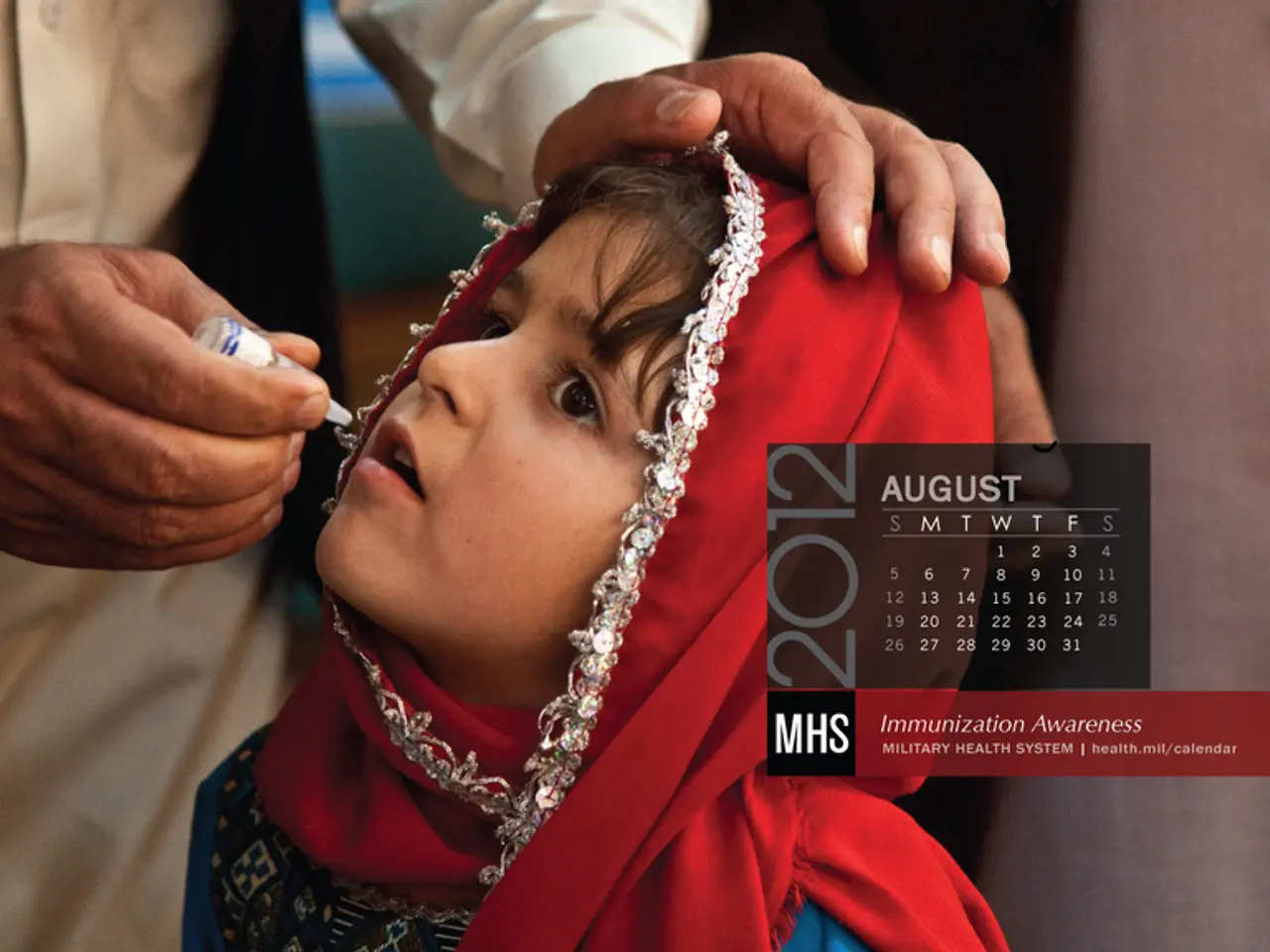Early Arrivals: Guidance on Vaccination Plans for Newborns
In the delicate world of premature birth, also known as preterm birth, infants born before completing 37 weeks of gestation, face unique challenges in developing their cognitive and motor skills, as well as an increased susceptibility to various health complications [1]. As a result, creating a safe and healthy environment for these preemies is of utmost importance.
One essential aspect of this environment is immunization. Just like full-term babies, premature infants should receive vaccines for diseases such as measles, mumps, rubella, pertussis (whooping cough), hepatitis B, and influenza [2]. The recommended vaccination schedule for premature babies generally follows the chronological age, rather than corrected gestational age, ensuring that they receive the necessary protection at the same ages as full-term infants [2][5].
The timing of immunization is crucial, with premature infants receiving vaccines at the same chronological ages as full-term infants (e.g., at 8, 12, and 16 weeks for DTaP/IPV/Hib/Hep B and pneumococcal conjugate vaccines) [2][5]. The number and timing of doses do not typically change due to prematurity, unless there is a specific clinical reason [5].
When it comes to respiratory syncytial virus (RSV), a common cause of respiratory infections in infants and young children, preterm infants are at higher risk of severe disease. For this reason, **nirsevimab**, a monoclonal antibody offering RSV immunization, is recommended within the first week of life for eligible preterm infants, especially if the maternal RSV vaccine was not received during pregnancy [4].
Premature infants may not have fully developed organs and systems, making them more susceptible to infections. Immunizations play a vital role in providing these infants with the necessary defense against potentially harmful infections. It is essential to educate oneself about vaccines to make informed decisions.
Healthcare providers can guide parents through the vaccination process, ensuring the best outcome for the baby's health and well-being. By consulting neonatologists and pediatricians, parents can receive personalized advice and guidance tailored to their premature baby's specific needs. It is recommended to follow the national routine immunization schedule by chronological age, maintain up-to-date vaccination records, attend scheduled appointments, and administer RSV immunoprophylaxis (nirsevimab) during relevant seasons for eligible preterm infants [1].
The link between vaccines and autism has been debunked by extensive scientific studies. Vaccines are safe and do not overwhelm the immune system, as proven by extensive research and clinical trials [6]. Vaccinating on time not only protects the baby but also contributes to the overall health and safety of the community.
In summary, vaccinating premature infants according to the recommended schedule based on chronological age is crucial in protecting them from vaccine-preventable diseases. By following the guidance of healthcare providers, parents can ensure their premature babies receive the necessary protection against potentially harmful infections, helping them grow and develop in a safe and healthy environment.
References: [1] American Academy of Pediatrics. (2021). Premature Infants and Vaccines. Retrieved from https://www.healthychildren.org/English/health-issues/conditions/premature-babies/Pages/Premature-Infants-and-Vaccines.aspx [2] Centers for Disease Control and Prevention. (2021). Immunization Schedules for Mothers and Children. Retrieved from https://www.cdc.gov/vaccines/schedules/index.html [3] Centers for Disease Control and Prevention. (2021). Pneumococcal Vaccines. Retrieved from https://www.cdc.gov/vaccines/vpd/pneumo/index.html [4] Centers for Disease Control and Prevention. (2021). Respiratory Syncytial Virus (RSV) in Children. Retrieved from https://www.cdc.gov/rsv/children/index.html [5] National Institute of Child Health and Human Development. (2020). Premature Birth. Retrieved from https://www.nichd.nih.gov/health/topics/premature/conditioninfo/pages/default.aspx [6] World Health Organization. (2020). Vaccines and Autism: Separating Fact from Fiction. Retrieved from https://www.who.int/news-room/q-a-detail/vaccines-and-autism---separating-fact-from-fiction
- Creating a safe and healthy environment for preterm babies is crucial, especially in their development of cognitive and motor skills, and to protect them from health complications.
- Just like full-term babies, premature infants should receive vaccines for diseases such as measles, mumps, rubella, pertussis, hepatitis B, influenza, and pneumococcal infections.
- Vaccines for premature babies are given at the same chronological ages as full-term infants, ensuring they receive the necessary protection.
- Nirsevimab, a monoclonal antibody for RSV immunization, is recommended within the first week of life for eligible preterm infants.
- Given their underdeveloped organs and systems, immunizations play a vital role in providing premature infants with defense against infections.
- Healthcare providers can guide parents through the vaccination process, helping them make informed decisions and ensuring their premature babies receive the necessary protection.
- Contrary to some claims, vaccines are safe and do not contribute to autism; on the contrary, they protect the baby and the community by preventing vaccine-preventable diseases.




